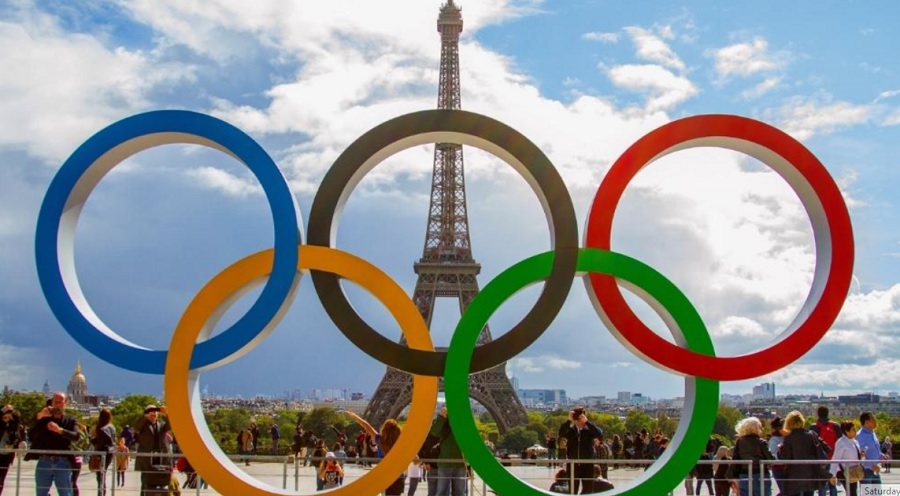Paris Olympics: A Post Mortem …C0NTINUE READING HERE >>>
Against all expectations, Team Nigeria’s participation in the recently concluded Paris 2024 Olympic Games ended in another nightmare. No member of the contingent came home with any medal of whatever colour. Though this is not the first time Team Nigeria has returned home from the Olympics without a medal, this is the worst outing at the quadrennial sporting event since the London 2012 Games.
Nigeria’s struggles at the Olympic Games date back to 1952 in Helsinki, Finland; 1956 in Melbourne, Australia; 1960 in Rome, Italy; 1968 in Mexico; 1980 in Moscow, then USSR; 1988 in Seoul, South Korea; and, most recently, the London, England 2012 Games, where the country won no medals.
After winning two medals (silver and bronze) at the Tokyo 2020 Games, hopes were high that Team Nigeria would match or surpass the Atlanta 1996 Olympics record, where the country won two gold, one silver, and three bronze medals. However, the team fell short despite participating in 12 sports with 88 athletes in several events and wasting a whopping N9 billion of taxpayer’s money.
This newspaper considers this a new low for sports in the country. It is safe to surmise that the Paris Olympics were a show of shame for Nigeria.
Experts have attributed Team Nigeria’s lacklustre performance at the Paris Olympics to poor preparation, injuries to top athletes, weak programmes for athletes, inadequate funding, and a lack of synergy within the ranks of sports administrators.
As in previous nightmares at the Olympics, Team Nigeria’s campaign in Paris was marred by controversies, ranging from Favour Ofili’s omission from the women’s 100m race, which she had qualified for, to the avoidable kits crisis between the Sports Ministry and the Nigeria Olympic Committee (NOC). The official kits raised questions about the character of the country’s sports managers.
The controversy erupted when it became evident that some athletes were competing in kits that deviated significantly from the official attire unveiled by the Ministry. The NOC’s decision to procure alternative kits ignited a public feud, with accusations of sabotage between the Ministry and NOC officials. The Ministry insisted that the NOC’s actions were intended to undermine the government’s efforts to present a united front.
Nigeria was also embroiled in international embarrassment at the Paris Games when its cyclist, Ese Ukpeseraye, had to borrow a bicycle from the German team to compete. Ukpeseraye, the first Nigerian cyclist to represent the country at the Olympics, revealed her challenge in a tweet on her X account. She said that she could not get a bicycle due to short notice and was almost at risk of not participating but the intervention of the German track team that helped her with a bike.
Beyond the public spat and lamentations of not winning a medal in Paris, Ofili’s omission from the women’s 100m race, the kit crisis, and Ukpeseraye borrowing a bicycle from the German team highlight the ineptitude and lack of coordination among Nigeria’s sports managers—a recurring problem that has hampered the country’s performance on the international stage for years.
Sports Development Minister, Senator John Enoh, described Nigeria’s performance at the Paris Games as a disaster and vowed to prevent future occurrences with a reform aimed at enhancing the leadership and effectiveness of Nigeria’s sports federations, paving the way for improved performance at global events.
“As we go back home, we must do everything to prevent a recurrence of the Paris disaster, and if this entails reviewing how people are elected to lead our sporting federations, it will be done,” Enoh said.
As much as he sounds logical, the minister forgot that federations or associations will not drive sports development at the grassroots, primary, secondary, and tertiary institution levels. Preparation for major championships and games is now old-fashioned. Serious countries no longer prepare for games and championships. Instead, they provide enabling environments that give youth massive opportunities to discover their talents.
This is what the United States of America and other serious countries do. We should go abroad and tap the excess talents produced by foreign governments (Nigerians born abroad) to come and represent the country in football, athletics, basketball, and so on. It is a known fact that 99 per cent of the D’Tigress players that achieved a historic feat in Paris as the first African side to reach the quarter-finals at an Olympic event were produced by the American system.
This newspaper believes that sports should not just be about winning medals at games and championships. Nigeria must use sports to solve socio-economic problems, insecurity, youth engagement and empowerment, promote tourism and so on.
The real lesson of the Paris 2024 Olympics and several others before it is that we need to embrace long-term planning and disciplined policy execution. We must discard an ad hoc approach to sports development and revive our school sports, collegiate and university games, and other various services’ sports. These are the mills from which gold medalists are produced.
>
